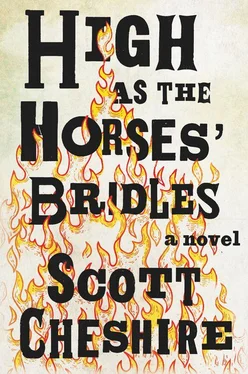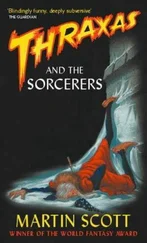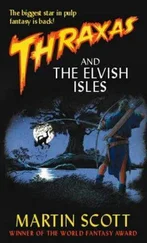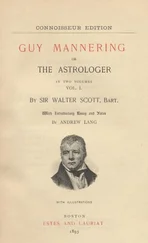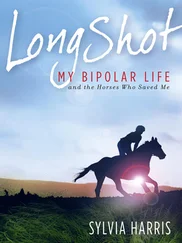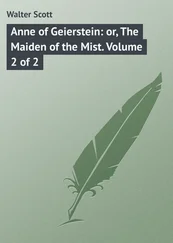The porch sofa was gone and the windows were blocked by drapes. One window was broken and banded with silver duct tape, what looked like cardboard behind. I rang the bell, took a deep breath, and waited. I knocked, and rang again. Talk about déjà vu.
There was a rustling inside, a curtain moved slightly.
The door lock clicked.
Why not come home sooner?
The door moved barely away from the jamb, and a brass chain bridged the opening. Then it quickly shut.
“Dad?” I knocked again. “It’s me.”
“Who?”
“Josie.”
“Josie?” His voice was weak. “Josiah?”
He forgot I was coming?
“It’s me,” I said. “I promise.”
I heard the chain fall. He opened the door, and there he was, my father, barefoot and barely dressed, emaciated. Wearing nothing but a loincloth.
It was dark inside, and my nose quivered as I watched him shuffle up the hallway. A smell of wet rot and trash, a scuttling on the floor.
“Come in, come in,” he was saying, and waving me on to follow.
I couldn’t move in the hot stink of the foyer; it was a long hall, and it seemed even longer in the dark. The stairs leading upstairs on my left, the smooth wooden banister, and the living and dining rooms on my right. The bathroom was under the stairs. The hall ran between the stairs and the rooms on my right, like a dark alleyway leading on to the brownish glow of the kitchen, far away and half alive with dusk light. He stopped in that doorway, a pale golem shadow sipping from a glass of water.
My eyes were adjusting. I realized I was surrounded by plastic garbage bags. A month of trash, maybe more, in swollen stacks, piled on a broken chair, disemboweled and spilling on the stairs. My face flushed. I squinted.
“Not much food in those,” he said. “Don’t worry.”
He disappeared into the kitchen.
My forehead was warm, not sickly warm but something else. I slapped at my temple. I squeezed the thin bone between my eyes. A fly buzzing at my lips, I blew it away. Breathed in, buckled some, and gagged. I was horrified. By the house. And, frankly, I was scared for my father. A family death can decimate a home, and here he was all alone and living with it.
“Get in here so I can get a look at you!”
I walked past the stairs and saw, beneath them, the door to the bathroom was shut. A faint red light was leaking out from beneath like a darkroom.
“Get in here!”
His back was to me. His white hair in a greasy straggle fell in the groove between sharp shoulder blades. It looked like he was wearing a diaper. Cat turds were scattered on the floor like cigar butts. He stood there in the warm bath of brown light and stretched up on his toes, skinny arms punching out slowly. He turned and faced me, yawning.
“Let me get a good look at you,” he said.
Knots of soiled clothing and dinner plates caked with dry sauces on the kitchen table and counters. A few sofa cushions piled beside the fridge. Towers of torn, yellowing books, wet papers littered the floor and spilled from the pantry. A mustard-colored smear on the linoleum, and the rich bone-stink of food gone dry after too long in the air.
He said, “What?”
I was thinking.
“Close up your mouth,” he said.
Thinking what.
“How about we have us a toast? Come on, Junior. Say something.”
“A toast would be good, I guess.”
“There’s the spirit! I’ve been waiting!” A large white cat, with a gray belly swinging, rubbed its head against his shin. “I have cats now.”
He turned to the refrigerator and with both hands he gripped and pulled the door half open. His elbows poked at the skin, and I thought of groceries falling through wet paper bags. He handed me an open bottle of beer. “I got them all ready, took off the caps.”
I took the bottle.
On the refrigerator racks: a half-full bottle of red wine, no cork; a loaf of bread wrapped in plastic; half a stick of butter on a silver dish; and a clear pitcher of water. He let me close the door.
I followed him into the low-lit dining room to the same wooden table where we’d always had our Sunday family dinners. The table was mostly clear of clutter. And the bottle was cold in my hand, so cold it shocked in the dark warm sweat of the room. I wiped my forehead with my sleeve. He sat in a chair not so close to the table. They were heavy chairs. As a boy, I’d had trouble pulling them out from under the table so I could sit down for dinner. I pulled a chair closer to his. It hardly seemed the same room.
“I can explain,” he said. “But first.” He smiled, and there was a glimpse of younger Gill, a flash of resurrection in his eyes. I thought of how different it had been standing at Mom’s sickbed, a year before, a vacuum between Dad and me, like a scooped-out hole in the universe. “This is a momentous thing,” he said. “Never had a doubt, I knew you were coming.” His lips were ashen, corners webbed with spit-milk. Even right here, in his presence, the man was somewhere else. Sarah was right. Something was wrong.
“So how’s my little man doing?”
I wanted a smoke.
“To us!” he said. “Say something! Sit!” He raised his bottle chin high.
I sat, raised mine, and we brought the bottles together, but a lot slower than usual for a cheer. The bottles were collared with a limp silver foil and torn white paper, and they made no noise when they touched. No clink of glass, just a soft papery pat. The reality of the situation was settling on me. Something was very wrong. He had no idea. And I knew he would fight me if I said so.
“So,” I said. “You look pretty good.”
“ You look good, taking care of yourself. How’s the beautiful wife?”
“Not my wife anymore. You know that.”
“Always your wife. Nonsense.”
The window behind my father, I broke it once with a Wiffle ball.
“And I’ve never felt better,” he said. “Despite—” He waved a hand. “Your mother, she used to clean.”
So, he was partly aware. I said, “The house could use some attention.”
“No one pays attention anymore.”
My heartbeat, my pulse, and the stink, I was semiacclimating. I dried the back of my neck with my sleeve. “And you’re feeling okay? How are you feeling?”
“Never better.” He patted my arm and slowly stood. The hand was cold.
“You want to tell me what’s going on?”
He left his bottle and shuffled to the opposite end of the table. He picked up a thin black notebook from a pile of back-to-school-sale spirals. Blue, red, yellow, green. He wrote something down with a pencil. “You always had a way, Junior, cutting right through the fat. Tell me now what’s new. Talk to me.”
I had no idea why he was calling me Junior.
He turned and yanked the pull chain of a small lamp on the other side of the table. The lamp cast a yellow cone over a thick open book. I saw his knotty spine. It zippered down from under his hair, and beneath the loincloth.
I said, “Are you eating? Please tell me you’re eating enough.”
“All I need.” He turned the pages slowly and scratched some notes in the spiral. “Right on down to the meat of things.”
Carefully, he set the book down, shuffled back, and pulled the chair farther from the table. I helped him some. He took hold of the back of the chair, and moved the chair slightly. Looked at it. Moved it again. Went back to the other side of the table and stood looking at his notebooks, shaking his head.
“Dad.”
He took the spirals in a stack and squared them off, against the table, into a neat pile. Set them back down. Nudged them so they were flush with the table edge. Looked at them. Looked at the chair. He picked them up again, squared them off again. I didn’t like seeing this sort of behavior. Compulsive.
Читать дальше
